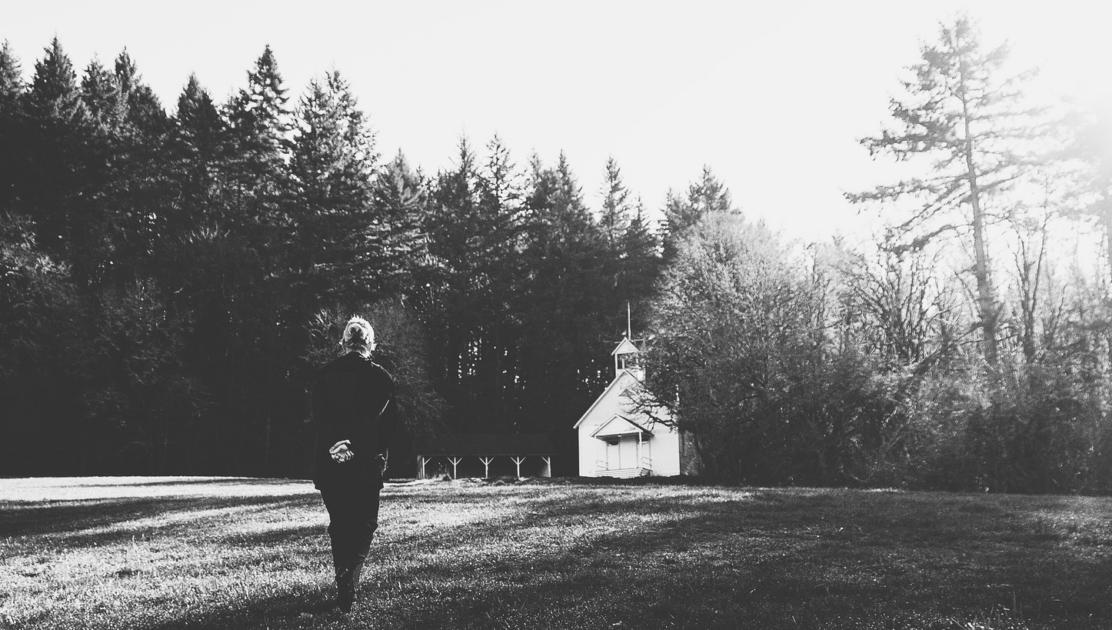Can Contemplation Still Find a Place in the World?
By Thomas MertonCan contemplation still find a place in the world of technology and conflict which is ours? Does it belong only to the past? The answer to this is that, since the direct and pure experience of reality in its ultimate root is man’s deepest need, contemplation must be possible if man is to remain human. If contemplation is no longer possible, then man’s life has lost the spiritual orientation upon which everything else—order, peace, happiness, sanity—must depend. But true contemplation is an austere and exacting vocation. Those who seek it are few and those who find it fewer still. Nevertheless, their presence [bears] witness to the fact that contemplation remains both necessary and possible. . . .
Man has an instinctive need for harmony and peace, for tranquility, order, and meaning. None of those seem to be the most salient characteristics of modern society. A book written in a monastery where the traditions and rites of a more contemplative age are still alive and still practiced, could not help but remind men that there had once existed a more leisurely and more spiritual way of life—and that this was the way of their ancestors. Thus even into the confused pattern of Western life is woven a certain memory of contemplation. It is a memory so vague and so remote that it is hardly understood, and yet it can awaken the hope of recovering inner peace. In this hope, modern man can perhaps entertain, for a brief time, the dream of a contemplative life and of a higher spiritual state of quiet, of rest, of untroubled joy. But a sense of self-deception and guilt immediately awakens a reaction of despair, disgust, a rejection of the dream and a commitment to total activism. We must face the fact that the mere thought of contemplation is one which deeply troubles the person who takes it seriously. It is so contrary to the modern way of life, so apparently alien, so seemingly impossible, that the modern man who even considers it finds, at first, that his whole being rebels against it. If the ideal of inner peace remains attractive, the demands of the way to peace seem to be so exacting and so extreme that they can no longer be met. We would like to be quiet, but our restlessness will not allow it. Hence we believe that for us there can be no peace except in a life filled up with movement and activity, with speech, news, communication, recreation, distraction. We seek the meaning of our life in activity for its own sake, activity without objective, efficacy without fruit, scientism, the cult of unlimited power, the service of the machine as an end in itself. And in all these a certain dynamism is imagined. The life of frantic activity is invested with the noblest of qualities, as if it were the whole end and happiness of man: or rather as if the life of man had no inherent meaning whatever and that it had to be given a meaning from some external source, from a society engaged in a gigantic communal effort to raise man above himself. Man is indeed called to transcend himself. But do his own efforts suffice for this?
The reason for this inner confusion and conflict is that our technological society has no longer any place in it for wisdom that seeks truth for its own sake, that seeks the fullness of being, that seeks to rest in an intuition of the very ground of all being. Without wisdom, the apparent opposition of action and contemplation, of work and rest, of involvement and detachment, can never be resolved. Ancient and traditional societies, whether of Asia or of the West, always specifically recognized “the way” of the wise, the way of spiritual discipline in which there was at once wisdom and method, and by which, whether in art, in philosophy, in religion, or in the monastic life, some men would attain to the inner meaning of being, they would experience this meaning for all their brothers, they would so to speak bring together in themselves the divisions or complications that confused the life of their fellows. By healing the divisions in themselves they would help heal the divisions of the whole world. They would realize in themselves that unity which is at the same time the highest action and the purest rest, true knowledge, and selfless love, a knowledge beyond knowledge in emptiness and unknowing; a willing beyond will in apparent non-activity. They would attain to the highest striving in the absence of striving and of contention.

This way of wisdom is no dream, no temptation and no evasion, for it is on the contrary a return to reality in its very root. It is not an escape from contradiction and confusion for it finds unity and clarity only by plunging into the very midst of contradiction, by the acceptance of emptiness and suffering, by the renunciation of the passions and obsessions with which the whole world is “on fire.” It does not withdraw from the fire. It is in the very heart of the fire, yet remains cool, because it has the gentleness and humility that come from self-abandonment, and hence does not seek to assert the illusion of the exterior self. . . .
Thus, far from wishing to abandon this way, the author seeks only to travel further and further along it. This journey without maps leads him into rugged mountainous country where there are often mists and storms and where he is more and more alone. Yet at the same time, ascending the slopes in darkness, feeling more and more keenly his own emptiness, and with the winter wind blowing cruelly through his now tattered garments, he meets at times other travelers on the way, poor pilgrim as he is, and as solitary as he, belonging perhaps to other lands and other traditions. There are of course great differences between them, and yet they have much in common. Indeed, the author of this book can say that he feels himself much closer to the Zen monks of ancient Japan than to the busy and impatient men of the West, of his own country, who think in terms of money, power, publicity, machines, business, political advantage, military strategy—who seek, in a word, the triumphant affirmation of their own will, their own power, considered as the end for which they exist. Is not this perhaps the most foolish of all dreams, the most tenacious and damaging of illusions?
In any event, it is certain that the way of wisdom is not an evasion. Simply to evade modern life would be a futile attempt to abdicate from its responsibilities [while clinging to its advantages. The way of contemplation is a way of higher and more permanent responsibilities] and a renunciation of advantages—and illusions. The contemplative way requires first of all and above all renunciation of this obsession with the triumph of the individual or collective will to power. . . . The life of the collective mass is such that it destroys in man the inmost need and capacity for contemplation. It dries up the living springs of compassion and understanding. It perverts the creative genius and destroys the innocent vision that is proper to man in communion with nature. Finally the collective mass becomes a vast aggregate of organized hatred, a huge and organized death-wish, threatening its own existence and that of the entire human race.
The mission of the contemplative in this world of massive conflict and collective unreason is to seek the true way of unity and peace, without succumbing to the illusion of withdrawal into a realm of abstraction from which unpleasant realities are simply excluded by the force of will. In facing the world with a totally different viewpoint, he maintains alive in the world the presence of a spiritual and intelligent consciousness which is the root of true peace and true unity among men. This consciousness certainly accepts the fact of our empirical and individual existence, but refuses to take this as the basic reality. The basic reality is neither the individual, empirical self, nor an abstract and ideal entity which can exist only in reason. The basic reality is being itself, which is one in all concrete existents, which shares itself among them and manifests itself through them. The goal of the contemplative is, on its lowest level, the recognition of this splendor of being and unity—a splendor in which he is one with all that is. But on a higher level still, it is the transcendent ground and source of being, the not-being and the emptiness that is so called because it is absolutely beyond all definitions and limitation.
Thomas Merton (1915-1968) was one of the most prolific and influential spiritual writers of the twentieth century. A monk, poet, and social activist, Merton wrote numerous books, including his monumental autobiography, The Seven Storey Mountain.
“Merton’s Call to Contemplation” By Thomas Merton, from On Christian Contemplation, copyright ©1963 by the Abbey of Gethsemani. Reprinted by permission of New Directions Publishing Corp.
Top photo courtesy of Loren Kerns on Flickr. Second photo courtesy of Simon Powell on Flickr.

Fantastic article! Thank you for sharing this.